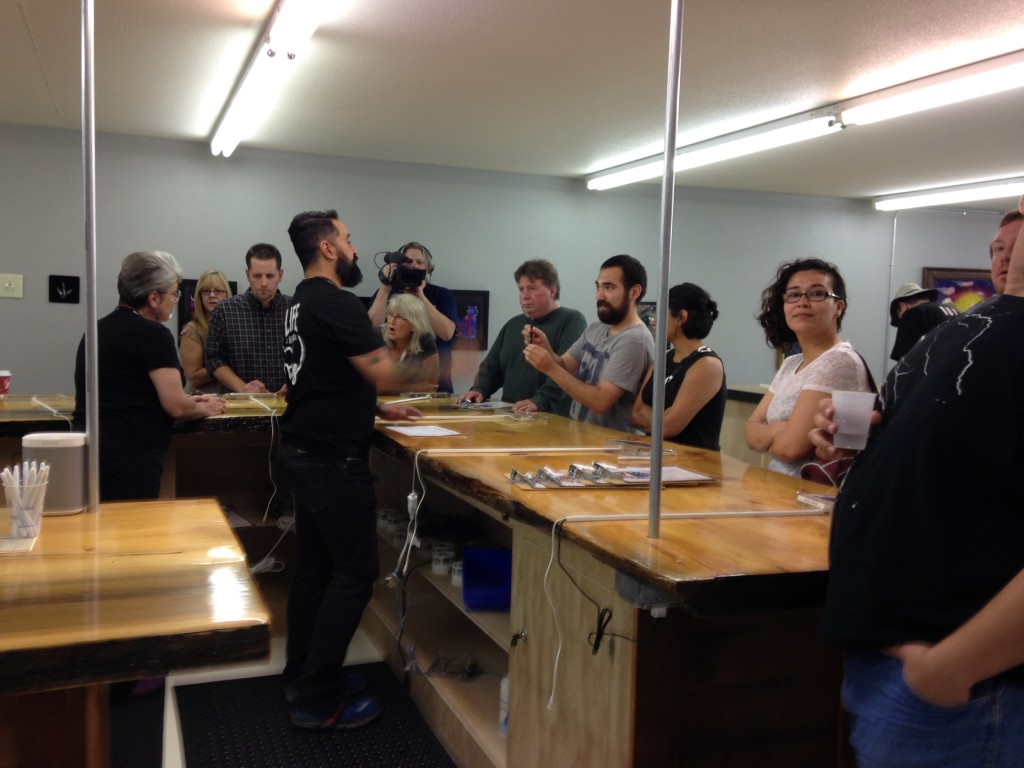What happens here if Oregon legalizes
The tangled web of I-502 could get even more interesting for Southwest Washington if, as many expect, Oregon legalizes marijuana this November.
Many people think it will take at least a year after the vote for that state to get set up, but with the bumpy startup of growers, processors and stores in I-502, there’s a lot of concern out there that our market will go south – both literally and figuratively.

Washington’s tax rates are higher than Colorado and will likely be higher than Oregon, which isn’t helping the situation. And stores and other businesses in Southwest Washington are wondering if they’ll still be able to draw customers over from Portland once Oregon sets up its own system.
Of course, customers aren’t supposed to transport marijuana across state lines at all, but that won’t stop it happening in either direction. If Portland sets up and has cheaper marijuana for sale, the Southwest Washington market will go there to buy it. Likewise, for now, Vancouver is the only legal recreational pot game in the area and Portland customers are coming here, along with tourists from the airport.
If Oregon does legalize, Washington’s I-502 growers and processors can’t sell their products to stores there. They can only sell products to other licensed I-502 businesses in Washington.
In some ways, that may be a good opportunity for stores – because if they feature local growers and gain brand loyalty for good products, customers will continue to come here to buy those products.
And while price gouging complaints against some growers continue, others (like CannaMan Farms, Monkey Grass Farms and a handful of others) are building a strong reputation for quality product that customers seem eager to buy.
But the framework of I-502 also means local companies can’t partake of what’s likely to be a lucrative market across our southern border.
Brian Stroh, owner of Vancouver’s CannaMan Farms, said he’s already working on a plan for Oregon legalization. What he’d like to do is open a second farm within that state’s legal framework to serve that market, he said.

“We’d have to be licensed from Oregon’s system and then we’d have to open another facility there,” Stroh said. “We can’t transport anything across state lines.”
He’d also like to grow his Vancouver business, which is a Tier 1 small farm, within the I-502 framework into the largest, a Tier 3, at some point.
But with space in Vancouver at a premium, that may mean he will have to move up to Longview or a similar area with larger properties at less cost, he said.
Several years from now, if the legalization push continues to move forward nationally, the hope among many is that this will turn into something more like the liquor industry – where cannabis brands, much like craft beers, can sell anywhere in the country.
Much like you can go to the store here and buy Sam Adams beer (granted, it’s not much of a craft small-market beer anymore, but it started that way), you could also potentially one day go to a store in Boston and buy CannaMan Farms signature Berry UW or Lemon Sweat.
Oregon’s legalization will affect Southwest Washington far more than it will areas around Seattle – it’s doubtful many folks will want to make a 3-hour traffic-ridden drive from there to shop in Portland.
But if Washington wants to protect its market, the legislature will probably have to step in and change the tax structure of I-502.
Even Seattle, if prices remain outrageously high, faces lost revenue and tourism as other states legalize. If prices are outrageously high in Washington compared to Oregon, tourists will travel to Portland or another state instead of coming here.
What do you all think? There’s a lot that still has to be worked out in this very young industry. It will be interesting to see where everything ends up.
Cheers,
-SueVo (sue.vorenberg@columbian.com)
